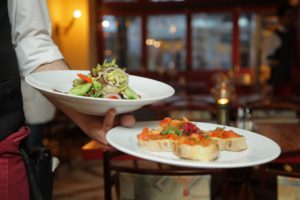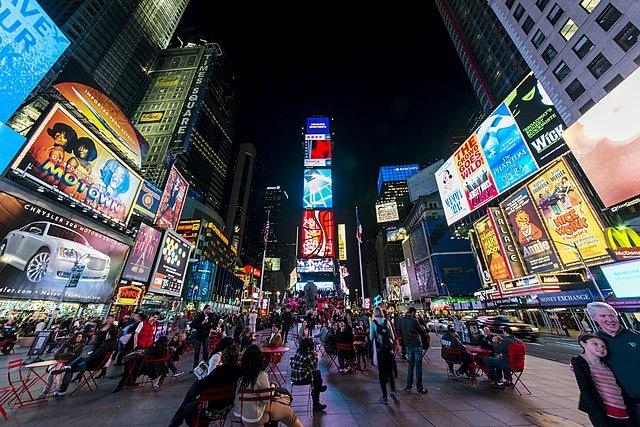In the 21st century, special interest areas are also increasing in tourism due to the increasing tendency to make special use of special times. Accordingly, the understanding of tourism is gradually moving away from tourism based on the sea and the sun. The development in food tourism also occurs depending on these trends.
Researchers are working to determine the subject headings that fall under the field of special interest tourism, such as eco-tourism and wine tourism, to determine which area tourists are involved in. The foodie tourist is a special interest tourist whose urge to travel is primarily driven by an interest in food. An internet search of special interest tours will reveal the existence of many tour operators that offer food and wine tours.
The food tours that will emerge as a result of this research can be grouped under three main headings; 1) Cooking school holidays 2) Eating at restaurants famous for their local food or chefs, and visiting food markets 3) Visiting manufacturers focused on one product (tea or coffee growers, chocolate lovers, wine tours, etc.).
Participation fees for cooking schools held in popular countries such as France, Italy or Spain range from $1500 to $5000. Such trips include shows by famous chefs, wine tasting in vineyards, visits to historical and cultural sites.
The second type of trips includes restaurant visits, local producers and food markets, as mentioned earlier. In some of these trips, olive oil or cheese tastings are made, and in some cases, walking and cycling tours are added to make the trip more exciting
In the third type of trips, detailed and special programs are prepared on only one product. These programs are activities that succeed in bringing together the love of travel and food, such as wine tours that start with participating in the harvest in the vineyards, continue with the conversion to wine in the factory and end with tasting, or chocolate tours in Switzerland and Belgium. For food tourism to emerge, where the food itself creates the urge to travel, it is as necessary to visit a wine or cheese factory or restaurant as it is to visit a particular event. From these perspectives, food tourism should be considered as special interest tourism.
Food-loving Tourist Profile

Touristic experiences not only offer the opportunity to meet new cultures and new regions, but also offer the opportunity to perceive these regions from new perspectives. This expansion in perception naturally contributes to the development of the individual. From this point of view, food culture is one of the most important ways of perceiving difference. While visits to the region ensure that the difference is perceived only from a certain angle, food tourism leads to a deeper and more comprehensive experience by evaluating the senses of taste, smell, touch and sight. President of the International Culinary Tourism Association says; “Have you ever driven for an hour or more just to try out a newly opened restaurant? Have you lost yourself among the shelves of a grocery store in a country where you went on a business trip? Have you taken food festivals, seasonal fruits or vegetables into account when making your holiday schedule? If so, you are most likely a food-loving Tourist.”
The act of eating and drinking is an individual and participatory experience that satisfies desires. The food experience perceived by the five senses can be remembered more and longer than other experiences during the holiday. The TAMS (Travel Activities & Motivation Survey, Wine & Cuisine Report) report published by the Canadian Tourism Commission in March 2001 is one of the most important reports in which the profile of the food-loving tourist is revealed. According to this published report, both young and adult singles and young and adult couples show interest in holiday activities enriched with wine and culinary culture.
Interest in such activities increases with education and income level. Based on the results of this report, it can be stated that the food-loving tourist is a researcher. Tourists who are interested in wine and culinary culture demand to enjoy more the spirit of discovery (visiting historical places, natural beauty), personal indulgences (casino visit, luxury life experience, nightlife or city life experience) and romance and relaxation during their holidays.
According to the same report, food-loving tourists are in the high spending group and enjoy cultural and outdoor activities.
Travel Motivations of the Food-Loving Tourist
We can list the travel motivations of the food-loving tourist as follows;
1) To watch a meeting or cooking performance attended by the cook or owner of a famous restaurant,
2) Watching the cooks race,
3) Dine in a new and famous restaurant or bar, or attend an opening night or a special program,
4) Going to a hard-to-find restaurant or bar that only locals go to,
5) Participating in food, wine or beer festivals and events,
6) Searching for local fresh foods (fresh herbs, fruits and vegetables at the greengrocer, market or self-pick farms),
7) Visiting places where wine is produced, following the wine production process,
8) Attending cooking classes (a few days, weeks or months)
Food tourism is not limited to individual tourists or small groups. Cooks and other professionals related to the subject are also considered food-loving tourists during their travels for learning, training and competition.
What would be your motivations for food tourism?
Let’s meet in the comments!
Anıl Uzun
